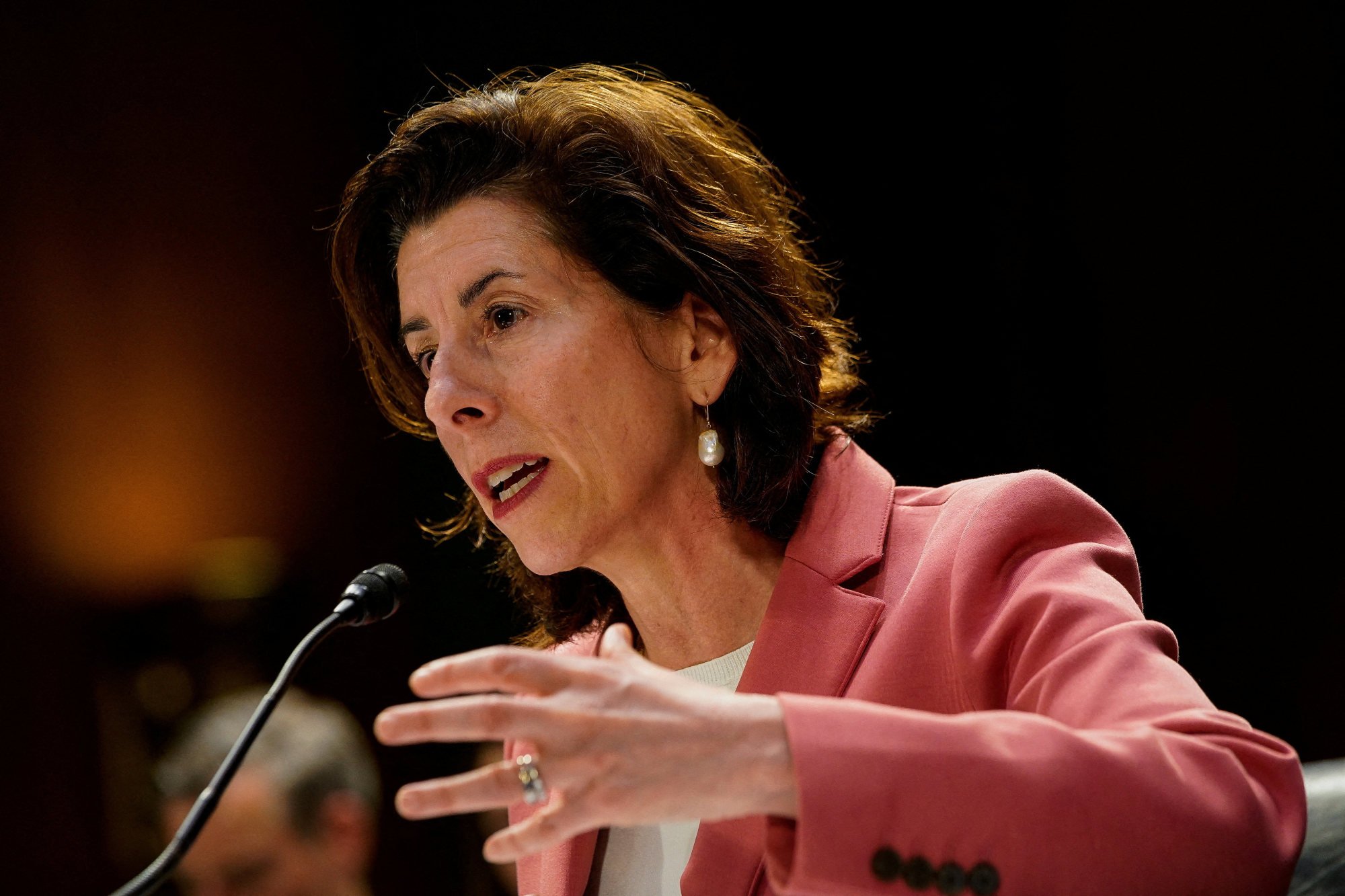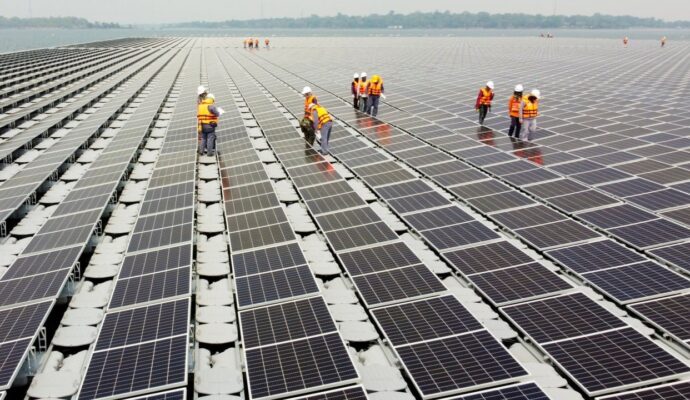“As long as China’s playing by the rules and is operating as a responsible actor in the global economy, you know, a stable Chinese economy is a good thing for the world,” Sullivan told reporters on Tuesday. “Intense competition requires intense diplomacy.”
Advertisement
This will be the fourth major Beijing sit-down between the two sides this summer following trips by Secretary of State Antony Blinken, Treasury Secretary Janet Yellen and climate envoy John Kerry.
In tumultuous tech war with US, China goes all in on computing power
In tumultuous tech war with US, China goes all in on computing power
Efforts to stabilise the relationship have gained urgency ahead of 2024, when Taiwan and the US will each hold presidential elections and domestic campaigns typically feature candidates criticising Beijing, stirring tensions.
Advertisement
In an apparent sign of good faith in the lead-up to Raimondo’s visit, US commerce officials on Monday announced the removal of 27 Chinese entities from its unverified list, a de facto trade restriction that subjects identified companies to more stringent scrutiny than normal before they are allowed to do business with US suppliers.

Among those taken off were two universities, chemical firm and lithium battery ingredient maker Guangdong Guanghua Sci-Tech and sensor maker Nanjing Gova Technology.
Advertisement
China welcomed the latest evidence of easing, however temporary.
The decision showed that “the two sides can address specific concerns through communication, based on mutual respect”, said foreign ministry spokesman Wang Wenbin, who added: “China will continue to firmly defend the lawful rights and interests of Chinese companies and institutions.”
And in its own apparent show of good faith, Premier Li Qiang on Monday told a visiting US-China Business Council delegation, according to Xinhua: “China is willing to work with the US in undertaking their responsibilities as major countries, jointly upholding international trade rules, and ensuring the stability of global industrial and supply chains.”
Biden plan to curb China investments focuses EU minds as deadline looms
Biden plan to curb China investments focuses EU minds as deadline looms
In February last year, 33 Chinese entities were added to the US list, mostly hi-tech manufacturers, after Washington reported being unable to verify their end users. That was followed 10 months later by the US removing 26 entities after Washington said it was able to verify that they were not diverting technologies for military use.
Advertisement
China at various times has characterised the restrictions as “political repression” and “economic bullying” even as Biden faces sharp opposition from Republican hardliners who frame any move to ease trade restrictions as “kowtowing” and a sign of weakness.
Another sore point between the two countries has been the Biden administration’s effort to expand a forceful coalition of allies and partners in countering China’s increasingly muscular diplomatic and military footprint.
Advertisement
So far, the bilateral confidence-building visits have largely involved American officials travelling to China, not the other way around. But analysts said they did not read this as a sign of US weakness, nor did they believe Washington expected a breakthrough.
“I don’t see the Biden administration making any concessions or being more eager than Beijing to conduct these visits,” said Bonnie Glaser of the German Marshall Fund of the United States, a public policy think tank.
“Biden administration officials have consistently said they seek to manage differences with China, prevent competition from veering into conflict and cooperate with China on issues where our interests overlap. I think these remain their objectives.”
US, allies must keep ‘eye on the ball’ with China tech curbs: commerce chief
US, allies must keep ‘eye on the ball’ with China tech curbs: commerce chief
While China’s recent poor economic performance could be a factor in Xi’s willingness to engage, it is not necessarily the only one.
“Xi had grand plans for how he was going to take advantage of Washington’s weakness, try and secure a stronger position for China in the region and internationally,” said Brett Bruen of Global Situation Room, a crisis management firm.
“He’s been hamstrung by challenges at home and been struggling, which should make him more willing to sit down,” the former US diplomat added.
“We’ll have to see what course he takes, but he should accept these gestures as an off-ramp to pursue a more traditional foreign policy.”
Additional reporting by Bochen Han in Washington and Vanessa Cai in Shanghai
Advertisement

